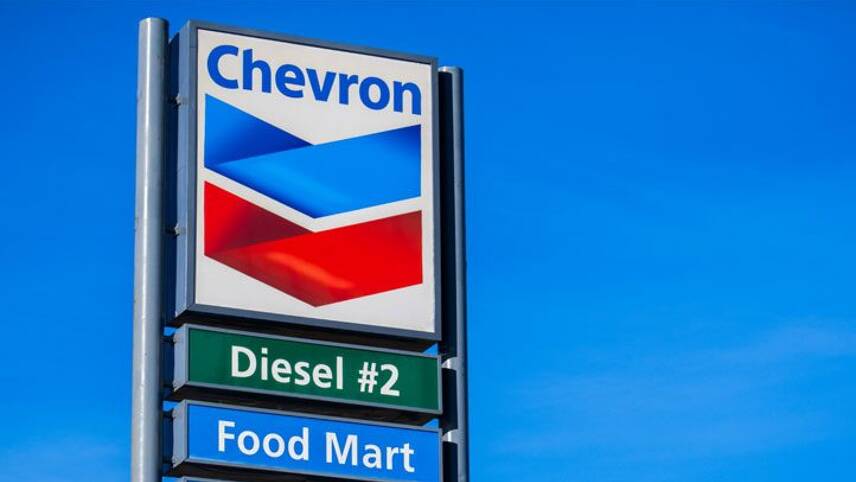Register for free and continue reading
Join our growing army of changemakers and get unlimited access to our premium content

After BP shareholders rejected a climate motion earlier this month
Both firms hosted their 2021 AGMs on Wednesday (26 May).
At the Exxon AGM, shareholders were given the choice to add up to four independent director candidates from climate action group Engine No. 1 to the board. The energy major reportedly did not want any of these candidates to be voted in but, ultimately, two were appointed.
Engine No. 1 said in a statement that the board change is “much-needed” in response to both the energy transition and “significant shareholder pressure”. Blackrock, the world’s biggest investor, is reported to have sided with Engine No 1.
Before January 2021, Exxon was only publishing and setting targets for Scope 1 (direct) and Scope 2 (power-related) emissions in its environmental disclosures. Emissions from these sources have been falling steadily but gradually, with a 3.2% reduction recorded between 2019 and 2020.
But green groups and shareholders then successfully pressed the business into disclosing Scope 3 (indirect) emissions and have continued to request stronger climate targets. Exxon is striving to ensure that every barrel of oil produced in 2025 generates one-fifth fewer emissions over its life cycle than in 2016. Supporting targets to decrease methane intensity by 40-50% and flaring intensity by 35%-45% have been set. Many want targets in absolute terms, plus a long-term commitment to net-zero.
At Chevron’s AGM, meanwhile, a proposal for new carbon targets from Dutch campaign group Follow This passed with 61% of the vote. The resolution will require Chevron to prove its climate targets are aligned with the Paris Agreement and to cover emissions in absolute terms.
While Chevron has insisted that it is “helping to advance a lower-carbon future” by expanding its forays into sectors like bioenergy, CCS and renewables, it has been repeatedly criticised for overstating its climate ambitions in the past. BlackRock took voting action against Chevron on climate grounds last year as Carbon Tracker analysis claimed the business is not aligned with the Paris Agreement.
Follow This has also had motions pass at Phillips 66 and ConocoPhilips this year. The group’s founder Mark van Baal said: “Big Oil can make or break the Paris Accord. Investors in oil companies are saying now: we want you to act by decreasing emissions now, not in the distant future.”
The news comes after a groundbreaking ruling from the Hague District Court, in which Royal Dutch Shell has been ordered to raise its commitments to carbon reduction. The ruling is the first of its kind.
Carbon Tracker update
In related news, Carbon Tracker has published a ranking of the world’s ten biggest oil majors, in terms of the strength of their climate commitments. Chevron and ExxonMobil, along with ConocoPhilips, are at the bottom of the table.
The tracker assesses whether companies have ‘net-zero’ goal; whether they cover indirect emissions from oil and gas use and other key sources; whether targets are measured in terms of absolute emissions and whether investment plans are aligned with climate targets.
Eni was found to be the only firm not excluding any key emissions sources from its net-zero pledge. While BP made the top three, its policy excludes its stake in Rosneft, which accounts for a third of its global production, and downstream product sales.
The US firms making up the bottom three are likely to deliver just a 15-20% cut in operational emissions by 2025 and could see indirect emissions growing in the coming years, under current plans, the report states.
Carbon Tracker has said that the overall picture is worrying and is calling on all investors in the sector to “question the credibility” of energy majors’ plans for achieving their climate targets. Investors should specifically be looking for plans to cut oil and gas production as well as scaling up investments in sectors like renewable generation, hydrogen, electric mobility and carbon capture and storage (CCS), the organisation is urging.
“Net-zero is not enough – it’s the pathway that matters,” report author Mike Coffin said. “To align with the Paris Agreement, companies must commit to absolute reductions in carbon emissions from their oil and gas products, with strong interim targets and a credible implementation plan.”
Sarah George


I sometimes wonder, as must many others, what scientific provenance is held by the “Green lobby”.
Everything that is done on an industrial scale must have a rigorous scientific provenance; chemistry, physics and the biological/botanical sciences.
Are such matters monitored? And if so by whom?
Richard Phillips